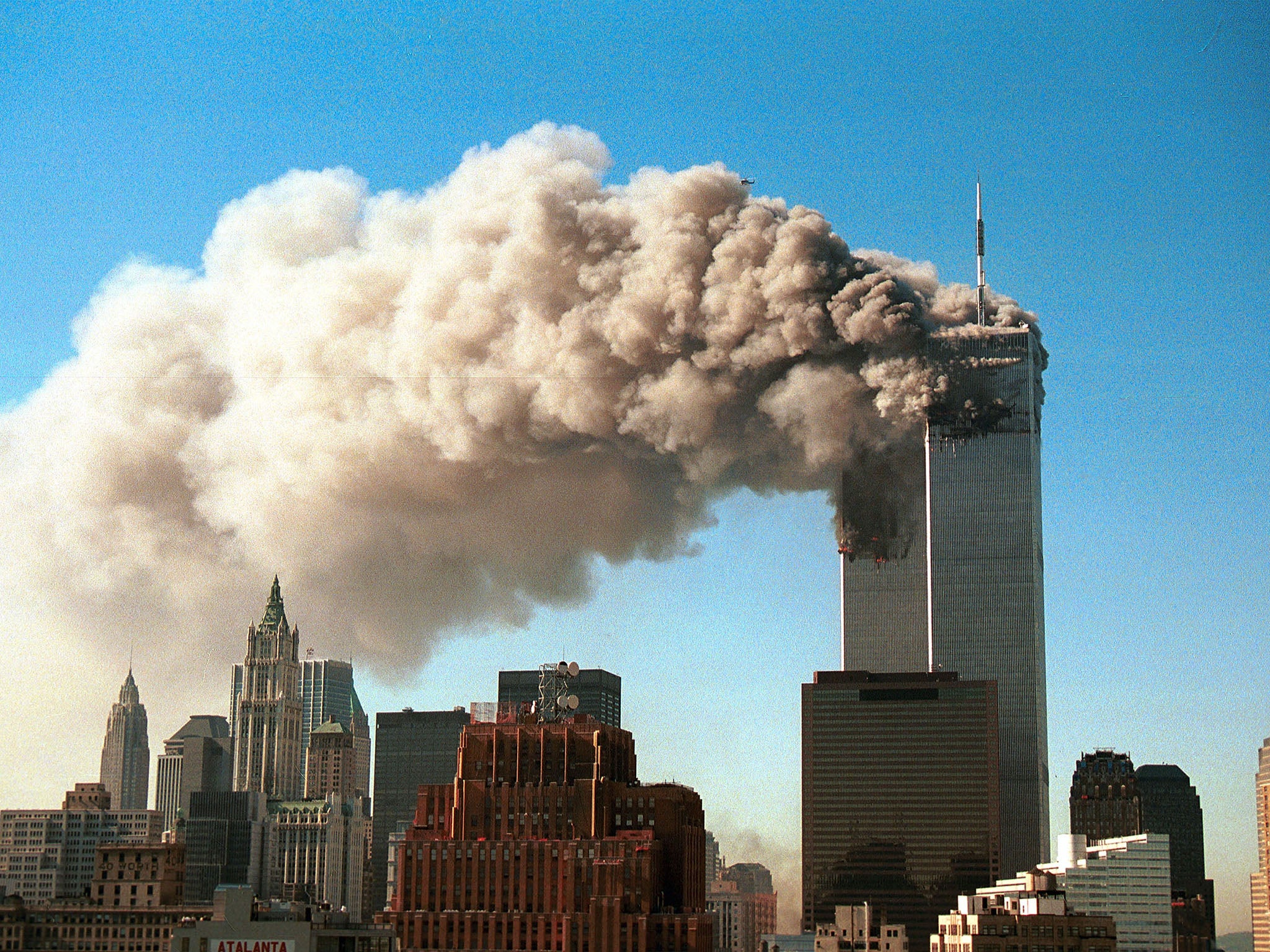US court allows 9/11 victims' lawsuits claiming Saudi Arabia helped plan terror attack
Judge rules there is 'reasonable basis' to allow thousands of survivors and families of victims bring legal action

A US court has rejected Saudi Arabia’s request to throw out lawsuits claiming the Middle Eastern nation helped plan the 9/11 terror attacks.
District judge George Daniels said there was “a reasonable basis” to allow legal action seeking billions of dollars in damages for victims.
The Saudi government has long denied involvement in the attacks, which claimed the lives of nearly 3,000 people when hijacked aeroplanes crashed into New York’s World Trade Centre, the Pentagon, and a Pennsylvania field.
Lawyers representing the families of those killed and about 25,000 people who were injured, as well as businesses and insurers affected, filed 25 lawsuits against the Saudis in New York last year.
Saudi Arabia argued the plaintiffs in the legal action could not show the kingdom or any affiliated charities were behind the attacks. It also claimed it deserved sovereign immunity and asked for the lawsuits to be dismissed.
But Mr Daniels said the allegations “narrowly articulate a reasonable basis” for him to assert jurisdiction over Saudi Arabia under the Justice Against Sponsors of Terrorism Act (JASTA).
“This is really a historic day for the families,” said Sean Carter, a lawyer for many of the plaintiffs. “The families have been trying for many years to have an opportunity for the Saudi government to answer on the merits.”
Saudi Arabia did not immediately respond to requests for comment on the decision.
At a Saudi stock market event in New York, asked whether the court decision would have a negative impact on Saudi investment in the United States, Capital Market Authority chairman Mohammed Abdullah El-Kuwaiz declined to comment, saying he had not seen the news.
Mr Daniels dismissed claims that two Saudi banks and a construction company controlled by the bin Laden family had provided funds and financial services for the attacks, saying he lacked jurisdiction.
He also rejected claims against the state-affiliated charity Saudi High Commission for Relief of Bosnia and Herzegovina, saying the plaintiffs’ “guilt-by-association” allegations did not overcome its presumption of immunity.
Saudi Arabia had long enjoyed broad immunity from 9/11 lawsuits in the US.
That changed in September 2016, when the US Congress overrode a veto by president Barack Obama and adopted the JASTA, which permits such claims to proceed.
Mr Obama had warned that the law could expose US companies, troops and officials to lawsuits in other countries.
Mr Daniels said the plaintiffs could try to prove that Saudi Arabia was liable for the alleged activities of Fahad al Thumairy, an imam at the King Fahad Mosque in Culver City, California, and Omar al Bayoumi, said to be an intelligence officer.
They were accused of helping two hijackers settle in the US and begin preparing for the attacks.
Saudi Arabia had argued that the plaintiffs could not show that any Saudi official, employee or agent planned or carried out the attacks.
James Kreindler, a lawyer for families bringing wrongful death claims, said he was “delighted” the case can proceed.
“We have been pressing to proceed with the case and conduct discovery from the Kingdom of Saudi Arabia, so that the full story can come to light, and expose the Saudi role in the 9/11 attacks,” he said.
He previously said their case would present “tons of allegations of what many Saudis and the country’s alter ego charities did”, adding: “Saudi Arabia cannot hide from the facts.”
Fifteen of the 19 terrorists in the 9/11 attacks were Saudis. The US investigated some Saudi diplomats and others with government ties who knew hijackers after they arrived in the US, according to documents declassified in 2016.
The 9/11 Commission report found “no evidence that the Saudi government as an institution or senior Saudi officials individually funded” the attacks al-Qaida masterminded, but the commission also noted “the likelihood” that Saudi government-sponsored charities did.
At a hearing in January, lawyer Michael Kellogg, arguing for Saudi Arabia, cited the Commission’s report repeatedly, as well as probes by the FBI and CIA.
“All rejected Saudi Arabia was responsible,” he said.
Last year survivors of the 9/11 attacks wrote to British prime minister Theresa May urging her to make public a British government report into the extent of Saudi Arabia’s funding of Islamist extremism in the UK.
The report was commissioned by her predecessor, David Cameron, as part of a deal to obtain political support for a parliamentary vote on UK airstrikes on Syria, but the Home Office said it was not published “because of the volume of personal information it contains and for national security reasons”.
Join our commenting forum
Join thought-provoking conversations, follow other Independent readers and see their replies
Comments
Bookmark popover
Removed from bookmarks